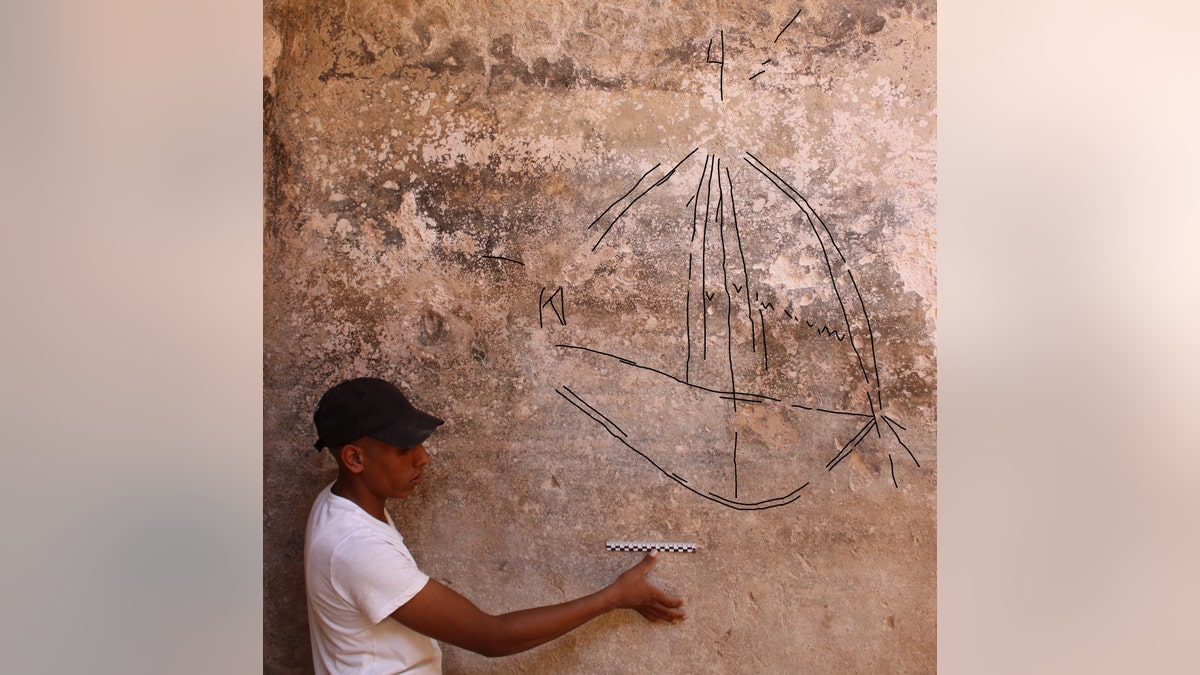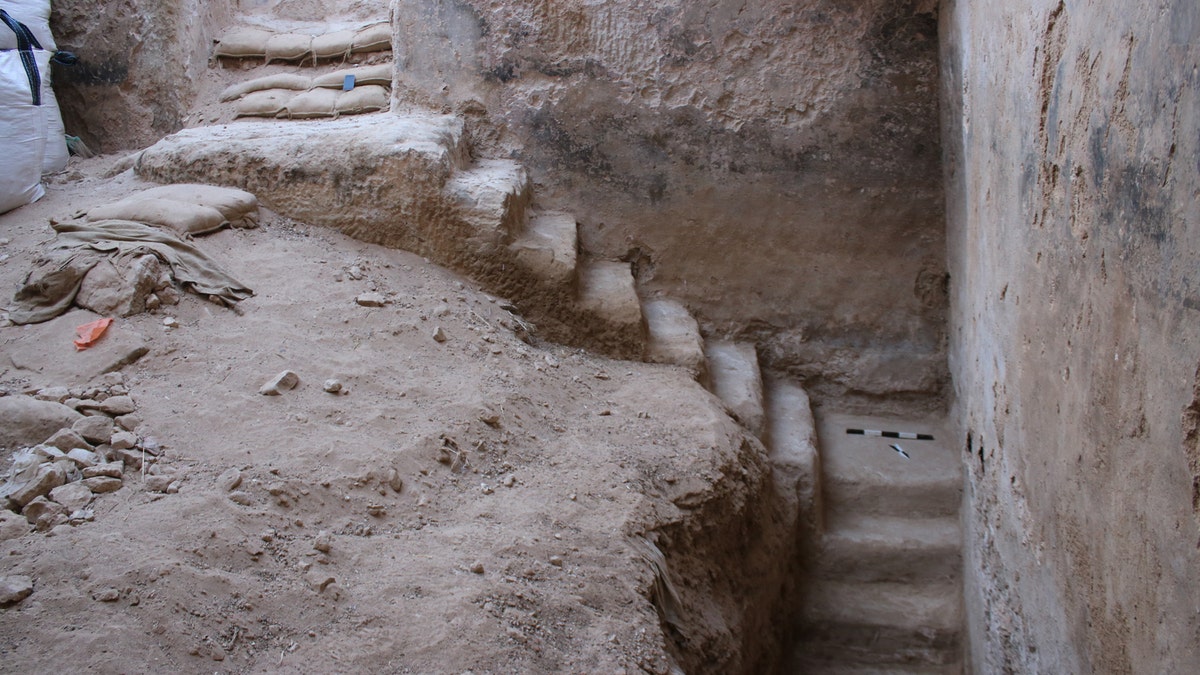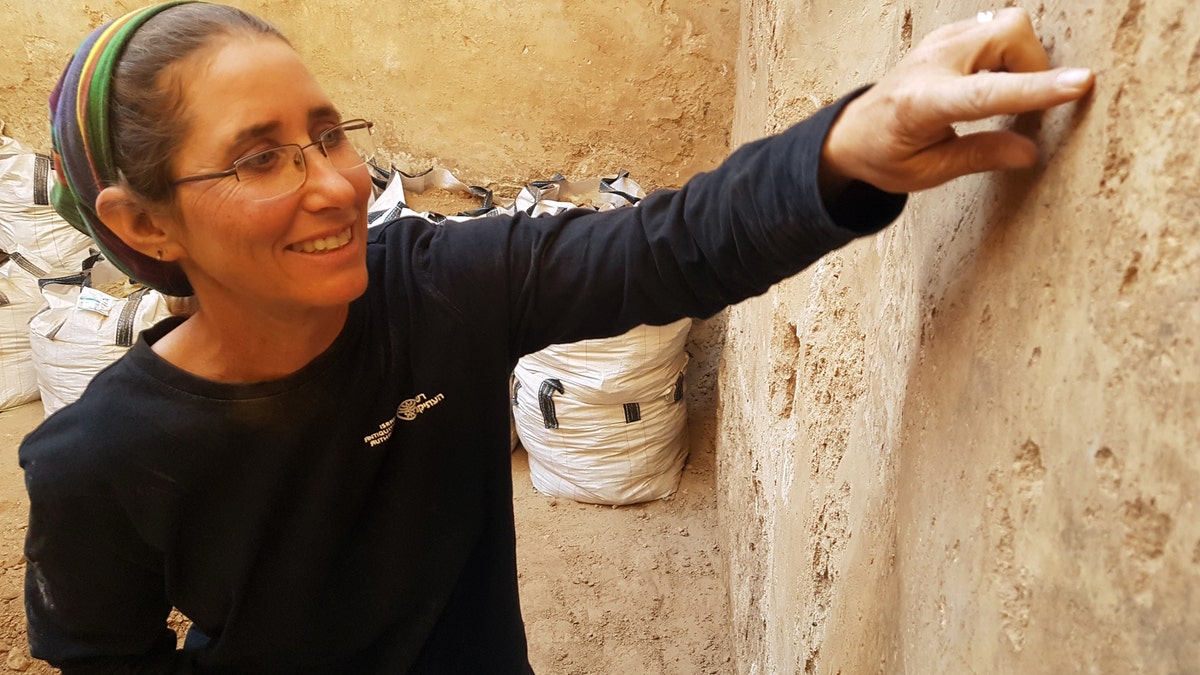
The ship graffiti was found on the plaster walls of an ancient Roman water cistern. (Credit: Davida Eisenberg-Degen, Israel Antiquities Authority)
Engravings of ships have been found on an ancient water cistern discovered in a city in Israel’s Negev desert.
The Roman era-cistern, which is 39-feet deep, was excavated by the Israel Antiquities Authority in the Negev city of Beer-Sheva. “After initial clearing a well hewn and plastered staircase leading into the depth of the cistern was exposed,” officials explained, in a statement.
Thinly engraved lines were found on the plaster walls of the cistern. On closer inspection, archaeologists discovered that the lines represented boats, a sailor and animal-style figures.
ANCIENT INSCRIPTION DISCOVERY THRILLS ARCHAEOLOGISTS IN ISRAEL
Whomever did the engravings had knowledge of ship construction, according to Dr. Davida Eisenberg-Degen, an Israel Antiquities Authority specialist in Rock Art and Graffiti. The cistern likely served a nearby Roman residence, she added.

The water cistern was excavated in the Israeli city of Beer-Sheva. (Credit: Davida Eisenberg-Degen, Israel Antiquities Authority)
The cistern was apparently in use until relatively recently – archaeologists discovered ammunition shells and parts of weapons dated to World War I in its sediment.
The find is just the latest fascinating archaeological discovery in Israel.
STUNNING BIBLICAL 'SPIES' MOSAIC DISCOVERED IN ISRAEL
In a separate project, archaeologists recently confirmed the first full spelling of “Jerusalem” on an ancient stone inscription excavated in the area of Jerusalem’s International Convention Center, known as Binyanei Ha'Uma.

Dr. Davida Eisenberg-Degen of the Israel Antiquities Authority examines the ancient Roman cistern. (Credit: Davida Eisenberg-Degen, Israel Antiquities Authority)
In another project, experts discovered a site that may offer fresh insight into the ancient biblical kingdom of David and Solomon. In a separate archaeological dig, a trove of bronze coins, the last remnants of an ancient Jewish revolt against the Roman Empire, were recently discovered near the Temple Mount in Jerusalem.
In February, archaeologists announced the discovery of a clay seal mark that may bear the signature of the biblical Prophet Isaiah.
LOST ROMAN CITY THAT WAS HOME TO JESUS' APOSTLES FOUND, SAY ARCHAEOLOGISTS
Other recent finds include the skeleton of a pregnant woman, dating back 3,200 years, in Israel’s Timna Valley, at a place once called King Solomon’s Mines.
At the site of an ancient city on the West Bank, archaeologists are also hunting for evidence of the tabernacle that once housed the Ark of the Covenant.
Some experts also believe they have found the lost Roman city of Julias, formerly the village of Bethsaida, which was the home of Jesus' apostles Peter, Andrew and Philip.
Follow James Rogers on Twitter @jamesjrogers








































